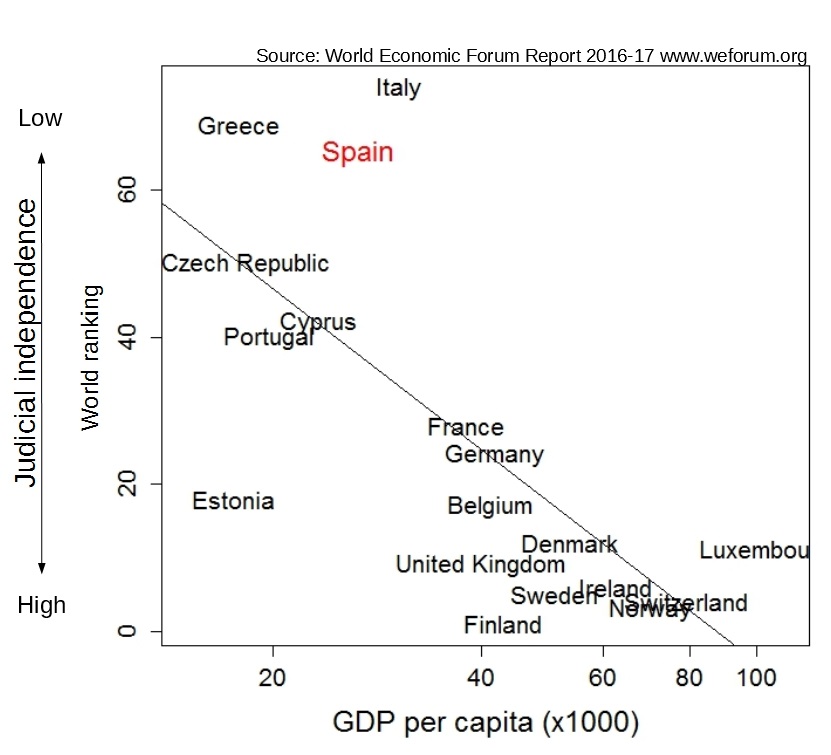Judicial independence in Spain
Spain is going through a political tension. The government is run by a right-wind party (PP) that shows many evidences of corruption (e.g., the Gürtel case, the Bárcenas affair, the Nóos case, among many others). The second party in number of seats (PSOE, theoretically a socialist party) is not doing much opposition; the political opposition is lead by the third party (Unidos Podemos) but has not enough seats [1] to modify PP-PSOE policies.
In this situation there has been a rise of criminalization of artist, including comedians (example), singers (example1, example2) and cartoonists (example); they are been persecuted, accused and judged for their lyrics, tweets, and drawings; something that is hard to believe it is happening in the 21st century in Europe. In some cases, they are even sent to jail before the trial to prevent their “illegal” activities. Similarly is happening with Catalan politicians (example), where the Spanish government is “solving” a political conflict using the judicial system. In fact, 2017 is now considered the worst year for the freedom of speech in the Spanish democracy. All this questions to what extent the judicial system is really independent in Spain.
Using the data from the Global Competitiveness Report 2016-17 of the World Economic Forum, I have plotted the world ranking in judicial independence against the Gross Domestic Product (GDP) for Spain and other European countries (Figure below). The conclusion is that Spain has a very low judicial independence (65 in the world ranking; the top ones are Finland, New Zealand and Norway), lower than the close neighbour countries (Portugal and France), and lower than expected by their economy (i.e., in the upper part of the ranking-GDP line in the Figure).
[1] Diversidad política (3), jgpausas.blogs.uv.es/2016/07/02/
